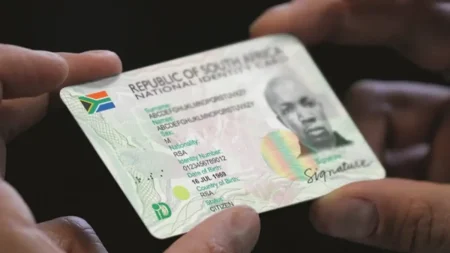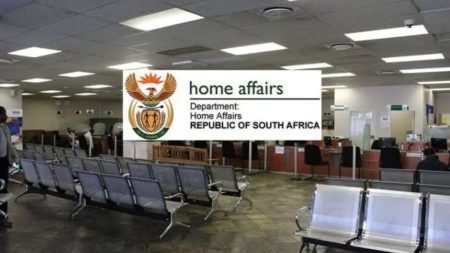South Africa, a country marked by stark contrasts between affluence and poverty, has long been committed to alleviating financial struggles for its citizens through various governmental financial assistance programs. These programs aim to foster economic inclusion, reduce inequality, and provide support to vulnerable individuals and communities.
Whether it’s for education, healthcare, small businesses, or unemployment relief, the South African government has rolled out several initiatives to help those in need. This article explores five prominent government programs that offer financial assistance in South Africa.
1. Social Relief of Distress (SRD) Grant
The Social Relief of Distress (SRD) grant is a lifeline for South Africans who find themselves in dire financial situations. Launched by the South African Social Security Agency (SASSA), this grant offers temporary assistance to individuals who are unable to meet their basic needs due to unforeseen circumstances, such as unemployment, illness, or disaster-related crises.
The SRD grant was significantly expanded during the COVID-19 pandemic to provide financial relief to people who were struggling because of lockdowns and economic disruptions. It continues to offer a lifeline for individuals experiencing financial hardship, ensuring that they have access to essential goods and services.
The SRD grant is available to unemployed South Africans who meet specific income criteria. Individuals must apply through the official SASSA website or SMS service, and if approved, they receive a monthly payment.
Eligibility:
- Unemployed South African citizens or permanent residents.
- Must not be receiving any other social grants or financial assistance.
- Must meet the required income threshold.
Benefits:
- Provides a monthly financial allowance.
- Temporary assistance aimed at alleviating short-term hardships.
2. Unemployment Insurance Fund (UIF)
The Unemployment Insurance Fund (UIF) is a crucial government program that provides financial relief to workers who become unemployed, as well as those who are unable to work due to illness, maternity, or adoption leave. Managed by the Department of Employment and Labour, the UIF aims to protect employees from the devastating financial impacts of job loss or other temporary setbacks.
The UIF is primarily funded through contributions from both employers and employees. Workers contribute a small percentage of their wages to the fund, which then provides financial assistance in times of need. In the event of unemployment, workers are entitled to a portion of their previous earnings for a specified period, depending on their contributions to the UIF.
During the COVID-19 pandemic, the UIF played a vital role in supporting South Africans who were unable to work due to the closure of businesses or strict lockdown measures. The Temporary Employer/Employee Relief Scheme (TERS), a special extension of the UIF, was implemented to help employees whose jobs were temporarily suspended due to the pandemic.
Eligibility:
- Employed workers who contribute to the UIF.
- Individuals who have lost their jobs or cannot work due to specified reasons.
- Self-employed individuals can also apply for assistance under certain circumstances.
Benefits:
- Provides financial relief during periods of unemployment or incapacity.
- Offers assistance to workers during temporary disruptions such as illness or maternity leave.
3. National Student Financial Aid Scheme (NSFAS)
Education is one of the key pillars of socioeconomic development in South Africa, and the government has placed a significant emphasis on making higher education accessible to all South Africans, particularly those from disadvantaged backgrounds. The National Student Financial Aid Scheme (NSFAS) is a key program designed to provide financial assistance to students pursuing tertiary education at public universities and Technical and Vocational Education and Training (TVET) colleges.
NSFAS provides loans and bursaries to eligible students, which they do not have to repay if they complete their studies and meet specific conditions. The program aims to reduce the financial burden on students and ensure that lack of financial resources does not become a barrier to accessing education. NSFAS covers tuition fees, accommodation costs, and other related expenses.
Eligibility:
- South African citizens or permanent residents.
- Students who meet the financial criteria (based on household income).
- Must be enrolled at a public university or TVET college in South Africa.
Benefits:
- Full coverage of tuition fees and additional allowances for accommodation, transport, and living expenses.
- Non-repayable bursaries if students meet academic and financial criteria.
4. Small Enterprise Finance Agency (SEFA)
Small businesses are the backbone of South Africa’s economy, and the government has recognized the importance of supporting these businesses through financial assistance programs. The Small Enterprise Finance Agency (SEFA), a government agency operating under the Department of Small Business Development, provides financial support to small, micro, and medium-sized enterprises (SMMEs) across South Africa.
SEFA offers a range of financial products, including loans and credit guarantees, to help businesses access the capital they need to grow and thrive. The agency focuses on providing support to businesses that are unable to secure financing from traditional commercial banks due to factors like lack of collateral or a limited credit history.
SEFA’s role extends beyond providing funding; it also offers mentoring, training, and advisory services to ensure that businesses have the resources and knowledge to succeed.
Eligibility:
- SMMEs based in South Africa.
- Businesses in all sectors, including agriculture, manufacturing, and services.
- Companies must meet SEFA’s criteria regarding business viability and need for financing.
Benefits:
- Provides access to capital for small businesses that might otherwise struggle to obtain financing.
- Financial products include loans, guarantees, and credit lines.
- Additional business development support through training and mentorship.
5. The Housing Subsidy Scheme
In an effort to combat the housing crisis and promote social inclusion, the South African government provides financial assistance through the Housing Subsidy Scheme, a program aimed at helping low-income families access affordable housing. The program is designed to provide financial support to qualifying individuals or families who are unable to afford homeownership in the open market.
The Housing Subsidy Scheme is particularly important for the large number of South Africans living in informal settlements or overcrowded conditions. Under this program, qualifying applicants are provided with a once-off grant to help them purchase a home or build a house on their own land.
The program is managed by the Department of Human Settlements, and it is available to individuals who meet specific income thresholds and do not already own a property.
Eligibility:
- South African citizens or permanent residents.
- Low-income individuals or households.
- Must be first-time homebuyers with no existing property ownership.
Benefits:
- Provides grants for the purchase or construction of homes.
- Aims to improve living conditions for South Africans in need of housing.
Check also: SONA 2025: How the Expanded SRD Grant Could Lead to a Basic Income Grant
The South African government offers a range of financial assistance programs designed to uplift citizens and promote socioeconomic stability. These initiatives are crucial for providing relief to those facing financial hardships, enabling access to education, supporting small businesses, and improving living conditions. While challenges remain, these government programs reflect South Africa’s ongoing commitment to addressing inequality and fostering a more inclusive and prosperous society.
By accessing these financial assistance programs, eligible individuals and businesses can improve their quality of life, create economic opportunities, and contribute to the overall growth and development of the nation. As the government continues to prioritize support for vulnerable groups, these programs remain essential tools in the fight against poverty and economic exclusion in South Africa.










